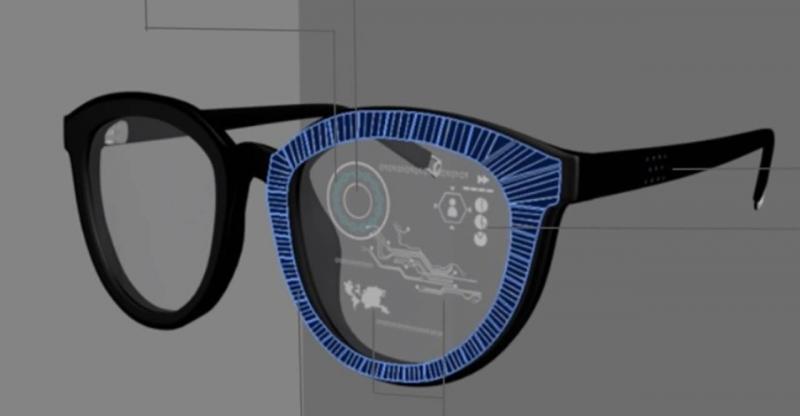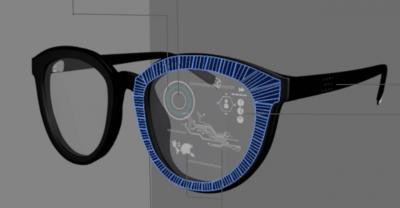Four students from the College of Arts at the University of Sharjah, in the Department of Interior Design, third year—Hanan Al-Ayubi, Manal Al-Bustani, Dalia Mohammed, and Noor Al-Jaber—have developed a project called "Smart Glasses". These glasses operate on a system that detects eye blinks using sensors that capture the pupil's signal and movement. The glasses are equipped with sensors, a speaker, a solar panel, an eye blink sensor, and a charging case, aiming to reduce traffic accidents caused by driver fatigue. The smart glasses alert the driver when their eyes are closed for longer than four seconds by sending audio notifications to wake them up, thereby preventing serious traffic accidents. The project won second place in a competition organized by the College of Business Administration at the University of Sharjah.
Hanan Al-Ayubi explains that the Smart Glasses project was implemented using knowledge gained from their design studies, addressing a global issue regarding the causes of traffic accidents due to mental distraction and fatigue. Interviews with drivers revealed that they often feel drowsy while driving, alongside feeling unsafe due to the increased risk of accidents under such conditions. This motivated the invention of the smart glasses designed to minimize accidents from fatigue by providing alerts via audio notifications that can wake the driver within four seconds.
Manal Al-Bustani mentions that the design thinking process was applied in the Smart Glasses project to reach a final solution for drowsy drivers. The first step was identifying and understanding the problem, followed by conducting interviews and surveys. The outcomes were discussed and analyzed to pinpoint the main causes. Subsequently, brainstorming sessions were held to identify potential solutions, leading to the innovative design of the smart glasses to alert drivers feeling drowsy, thereby reducing traffic accidents and preserving lives and property.
Dalia Mohammed adds that the project includes a speaker, sensors, metal and plastic materials, aramid fibers, a solar panel, nickel-plated zinc alloys, an eye blink sensor, a charging chip, and a copper charging port. The project's goal is to decrease the rate of traffic accidents caused by fatigue, exhaustion, and lack of sleep that can lead to loss of vehicle control by notifying the driver through the provided speaker.
Noor Al-Jaber states that working on the project took two and a half months and that it can be further developed by automotive companies in the future. This would involve placing sensors on the car's windshield, eliminating the need for glasses. Additionally, they could enhance the alert system via audio to create a more effective warning, such as spraying water to keep the driver focused, thus preventing them from shutting their eyes while driving due to fatigue or drowsiness.




